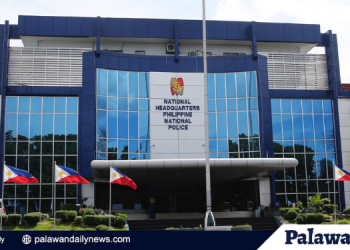Reflecting escalating tensions in the West Philippine Sea (WPS), Western Command (WESCOM) commander Vice Admiral Alberto Carlos, in a press conference yesterday, August 10, revealed the presence of over 400 foreign vessels in the contested waters with a staggering 85% of these vessels identified as Chinese-owned.
Of particular concern is Mischief Reef, where WESCOM reported a striking observation on Wednesday, August 9. An astounding 191 China militia vessels were detected in the area on that day alone.
Reuters has previously reported, “Such militias consist of commercial fishing boats, which work in coordination with the Chinese authorities for political objectives in the South China Sea. The Chinese government, however, in the past rejected the existence of any such militia.”
Vice Admiral Alberto Carlos stated, “For the entire [WPS] area, there are many. Over 400 based on our latest monitoring — that’s just all foreign vessel incursions in the West Philippine Sea (WPS) now. Let’s put it at almost 400 plus. That’s a safe estimate because there might be duplications of sightings.”
Highlighting the urgency of the situation, he added, “If it’s just Chinese, as of yesterday (August 9) at Mischief [Reef], there are 191,” emphasizing that these sightings are confined to WESCOM’s operational jurisdiction.
Amidst the escalating tensions and assertive maneuvers by China in the region, the Armed Forces of the Philippines (AFP) is adopting a proactive approach. General Romeo Brawner, the AFP Chief of Staff, unveiled a comprehensive strategy designed to enhance the country’s presence in the disputed waters. As part of this strategy, the AFP plans to provide training for fisherfolk, integrating them into their paramilitary forces alongside the deployment of reservists. These measures are aimed at effectively countering China’s aggressive actions and safeguarding the sovereignty of the Philippines.
General Brawner made this announcement following an unsettling incident that occurred nearly a week ago when the Chinese Coast Guard employed water cannons and militia vessels to hinder the safe passage of two Philippine supply boats en route to Ayungin Shoal, transporting crucial supplies such as food, water, and other provisions.
Brawner also emphasized that the AFP has laid the groundwork by establishing reserve units poised to contribute to maritime security. However, the operational deployment of these reserve units is currently contingent upon the allocation of enough funding by the national government and suitable platforms or vessels to facilitate their actions.






















Discussion about this post